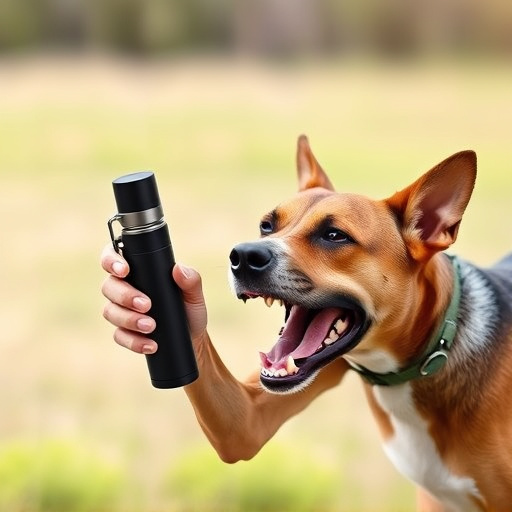The US lacks uniform pepper spray dog laws, with regulations varying widely from state to state. Some states, such as California and New York, have stringent rules, requiring certification and registration, while others, like Texas, allow unrestricted use. It's crucial for pet owners and professionals to research local laws before acquiring or employing pepper spray for dog training or deterrence, promoting responsible ownership and safe interactions.
“Exploring the legal landscape of pepper spray dog laws across the US is essential for understanding animal control practices. This comprehensive guide delves into state-specific regulations and permits governing the use of pepper spray on dogs, offering a detailed overview for pet owners, law enforcement, and animal advocates. From understanding the active ingredients to mastering best practices, this article provides critical insights into the legal considerations surrounding pepper spray dog laws by state.”
- Understanding Pepper Spray Dog Laws: A Comprehensive Overview
- State-Specific Regulations and Permits for Animal Control Spray
- Legal Considerations and Best Practices for Using Pepper Spray on Dogs
Understanding Pepper Spray Dog Laws: A Comprehensive Overview
In the United States, pepper spray dog laws vary significantly from state to state, reflecting a complex interplay between public safety and animal welfare concerns. Understanding these regulations is crucial for both pet owners and those who work with dogs, including law enforcement and animal control officers. Pepper spray, or oleoresin capsicum (OC), is a non-lethal agent that temporarily incapacitates an individual by causing intense pain and tearing in the eyes. When used on dogs, it serves as a deterrent to aggressive behavior, providing a safer alternative to lethal force.
Each state has its own set of rules governing the legal use of pepper spray on dogs. Some states, like California and New York, have comprehensive regulations that detail who can possess and use pepper spray, as well as specific requirements for training and storage. Other states have more relaxed laws or none at all. For instance, Texas allows individuals to use pepper spray against aggressive dogs without a permit, while Massachusetts requires a special license for its use. Pepper Spray Dog Laws by State resources are readily available online, offering detailed insights into the specific regulations in each jurisdiction. These resources empower citizens and professionals alike to ensure they are operating within legal boundaries, promoting responsible dog ownership and safe interactions between humans and canines.
State-Specific Regulations and Permits for Animal Control Spray
Each state in the US has its own set of regulations and permits for animal control spray, including pepper spray designed for dog training or deterrence. Understanding these laws is crucial before acquiring or using such a product. The rules vary widely across states, ranging from strict licensing requirements to permissive frameworks with minimal barriers. For instance, some states like California demand comprehensive training certifications and registration for both the user and the spray, while others may only require a simple permit application.
When considering pepper spray dog laws by state, it’s important to research specific legalities in your area. You might need to consult local law enforcement agencies or relevant government departments for up-to-date information. Remember that these regulations are subject to change, so staying informed is key to ensuring you’re in compliance with the latest Pepper Spray Dog Laws by State.
Legal Considerations and Best Practices for Using Pepper Spray on Dogs
Using pepper spray on dogs is a controversial topic, and its legality varies significantly across different states in the US. Understanding pepper spray dog laws by state is crucial before considering this method for animal control. Each state has specific regulations regarding the use of force against animals, with some explicitly prohibiting the use of pepper spray or similar irritants. For instance, California and New York have strict rules against using any form of chemical agent on dogs.
Best practices dictate that pepper spray should only be employed as a last resort when traditional training and positive reinforcement methods fail. It’s important to familiarize yourself with alternative techniques and consider the dog’s well-being. If used incorrectly or unnecessarily, pepper spray can cause severe discomfort, stress, or even long-term health issues for the animal. Therefore, proper training and understanding of canine behavior are essential before attempting to use any type of irritant as a control measure.
In conclusion, understanding and adhering to the specific pepper spray dog laws by state is paramount for animal control professionals and pet owners alike. The legal considerations outlined in this article emphasize the importance of responsible usage, highlighting best practices for safe and effective deployment. By staying informed about state-specific regulations and permits, individuals can ensure they are acting within legal boundaries while maintaining the well-being of both animals and humans.
